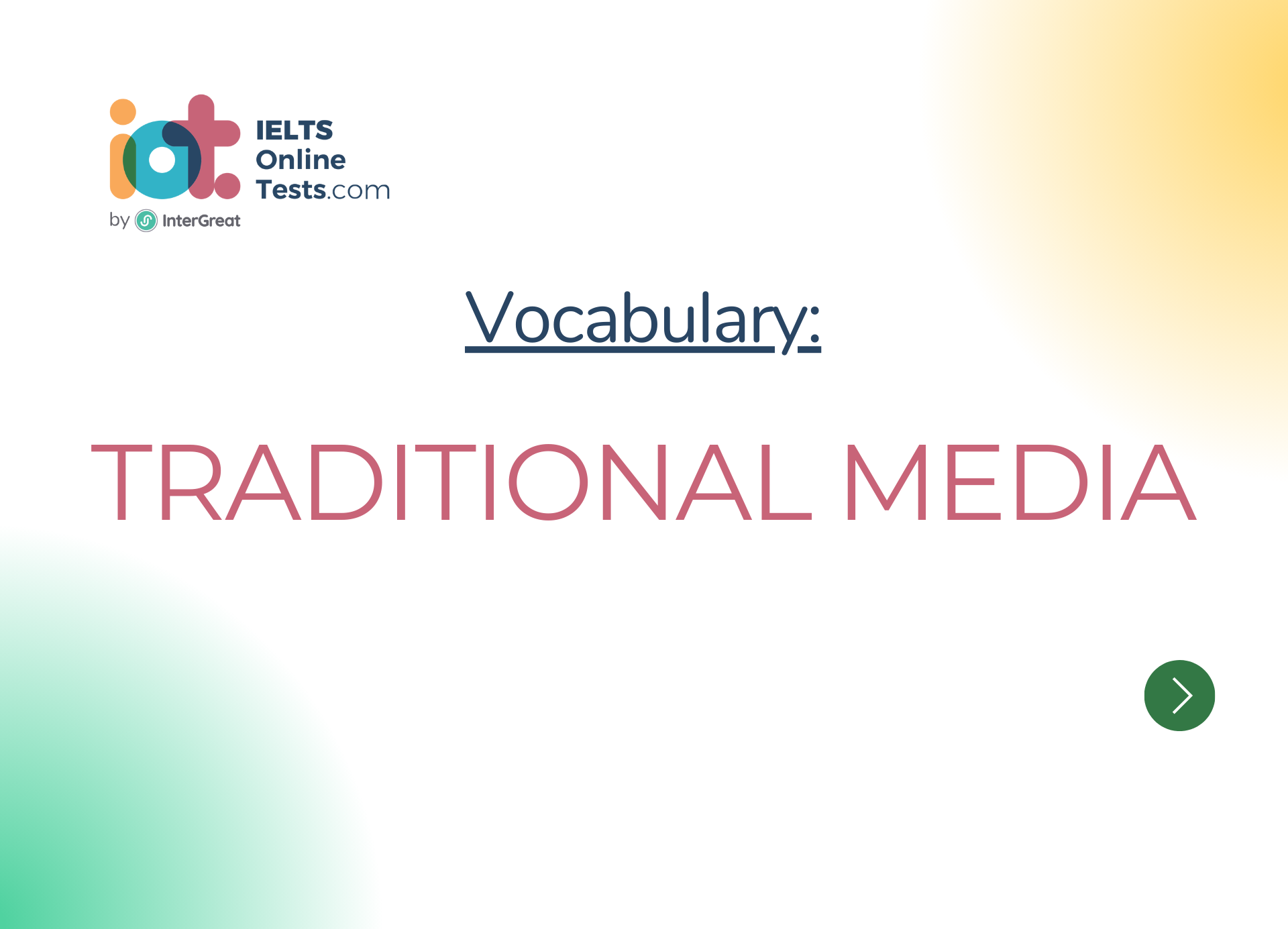
Traditional media
Below is a detailed list of vocabulary related to traditional media, along with their definitions. These words and phrases will help you discuss various aspects of traditional media during the IELTS exam or any conversations on this topic:
Traditional Media:
- Definition: Traditional forms of mass communication that have been established before the rise of digital media, including print, broadcast, and other offline channels.
Print Media:
- Definition: Publications such as newspapers, magazines, brochures, and flyers that are distributed in physical form.
Broadcast Media:
- Definition: Media channels that transmit information, news, or entertainment via radio or television.
Newspaper:
- Definition: A printed publication that provides news and information about current events, politics, business, sports, and more.
Magazine:
- Definition: A periodical publication that covers various topics, often with a specific theme for each issue.
Journal:
- Definition: A scholarly or professional publication that presents research and academic articles in a specific field.
Brochure:
- Definition: A small printed booklet or pamphlet that provides information about a product, service, or organization.
Radio:
- Definition: The transmission of audio content, such as music, news, and talk shows, through radio waves.
Television:
- Definition: A broadcast medium that delivers visual and audio content, including TV shows, news, and documentaries.
Advertising:
- Definition: Promotional content or messages designed to persuade audiences to buy a product or service.
Press Release:
- Definition: An official statement or announcement issued to the media for public information.
Media Coverage:
- Definition: The attention and reporting given to a particular event or topic by media outlets.
Editorial:
- Definition: An opinion piece written by the editorial staff of a newspaper or magazine expressing the publication's stance on an issue.
Column:
- Definition: A regular feature in a newspaper or magazine where a writer expresses their views or opinions on various topics.
Headline:
- Definition: The title or heading of a news article that summarizes the main point or subject.
Journalist:
- Definition: A person who investigates, collects, and reports news for media outlets.
Reporter:
- Definition: A journalist who is assigned to cover specific news events and provide firsthand accounts.
Media Outlet:
- Definition: A specific channel or publication through which news and information are disseminated, such as a newspaper, radio station, or TV network.
Circulation:
- Definition: The total number of copies of a print publication distributed or sold.
Audience:
- Definition: The group of people who receive and consume media content.
Publication:
- Definition: A printed work that is published and made available to the public.
Newsprint:
- Definition: The type of paper used for printing newspapers.
Media Bias:
- Definition: The tendency of media outlets to present news from a particular perspective or favor a certain ideology.
Media Ethics:
- Definition: The principles and standards governing the conduct of journalists and media organizations in reporting news.
Press Freedom:
- Definition: The right of journalists and media outlets to publish information without censorship or interference.
Editorial Policy:
- Definition: The guidelines and principles followed by a media organization in determining the content and tone of its editorials.
Feature Story:
- Definition: A longer, more in-depth news article that goes beyond the basic facts and explores a topic in detail.
Public Affairs:
- Definition: News and information related to government activities, policies, and public issues.
Infotainment:
- Definition: Media content that combines news or factual information with entertainment elements.
Analog Broadcasting:
- Definition: The traditional method of broadcasting radio and television signals in analog format.
Press Photographer:
- Definition: A photographer who works for media outlets and captures images to accompany news stories.
Media Literacy:
- Definition: The ability to access, analyze, evaluate, and critically understand media content.
As you study and utilize these vocabulary words, practice incorporating them into your conversations and written responses to demonstrate your understanding of traditional media during the IELTS exam or any discussions on this topic.




